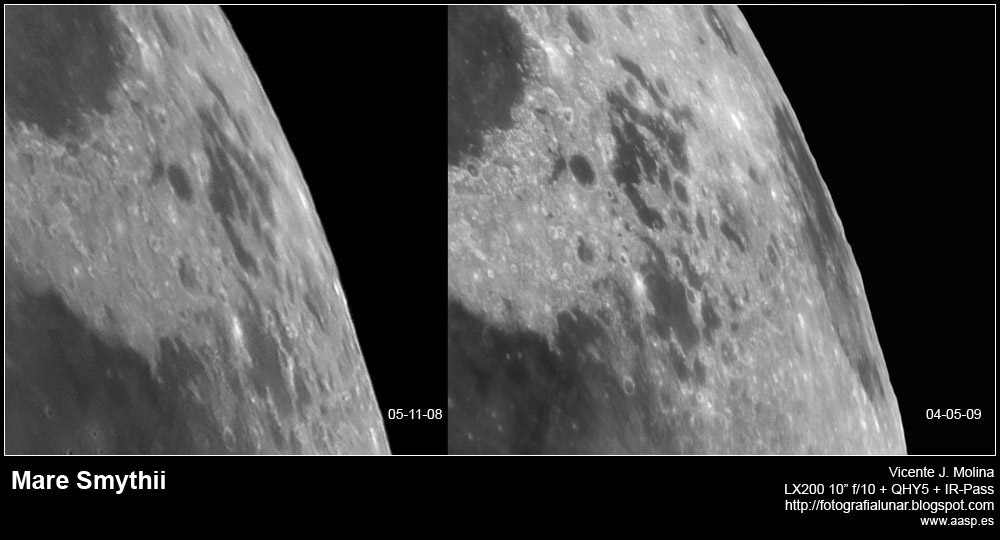May 25, 2009
The Case of the Missing Mare

image by Vicente J. Molina, Santa Pola, Spain
Can you tell by naked eye observing that the Moon librates? With a telescope it is easy to document, as Vicente has here, that major limb features can be moved completely out of view. And with binoculars the changing distance of Crisium from the limb can be seen easily, as well as Frigoris, albeit less conspicuously. But without optical aid can you detect the sway of Crisium or the nodding of Frigoris? Use the Comment section to let me know. Thanks!
Chuck Wood
Technical Details
May 4th, 2009, 23:52 UT. LX200 10" at f/10 + QHY5 mono + Astronomik IR-Pass 807 filter. Captured with QGVideo and processed with Avistack and PixInsight LE.
Here is the info for the 2008 image.
Related Links
Rükl plate 27 & 38
Vicente's website
COMMENTS?
Click on this icon File:PostIcon.jpg at the upper right to post a comment.



